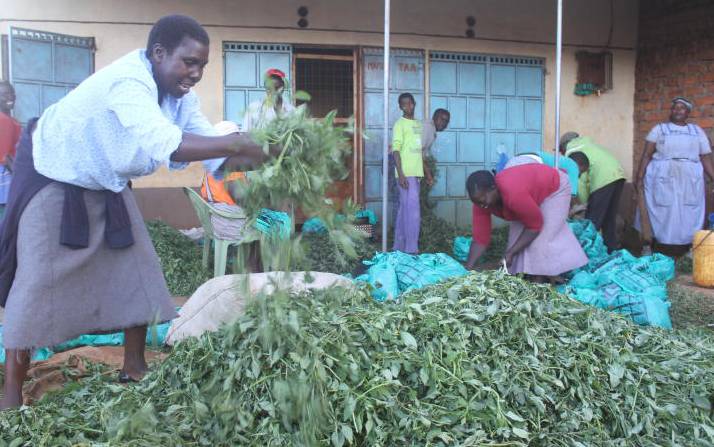AfricaPress-Kenya: Fresh vegetable and fruit traders in Kisii are registering losses after the county closed all open-air markets two weeks ago to curb the spread of the coronavirus disease.
The move has affected more than 500 traders why earn their livelihood from Kisii town’s fresh produce markets.Inflicting more pain on their trade is the closure of most hotels and restaurants in the town, and disruptions to the supply chain.
Traders have now resorted to playing ‘hide-and-seek’ with law enforcers in an effort to earn enough money to support their families.Most of them have resorted to door-to-door hawking of produce, which they do stealthily to dodge county and public health officials.
Daraja Mbili Market, which accommodates fresh and fruit vegetable vendors, was also closed two weeks ago. Most traders here are involved in wholesale trade. Tomato sellers, for instance, source for the vegetable from as far off as Uganda and Tanzania.Also affected are traders who transport goods from Kitale in Trans Nzoia County and Kilgoris in Narok County, where indigenous and other fresh vegetables are grown on a large scale.
Mary Kemunto has been supplying at least five sacks of both spider plant (sagaa or saget) and black nightshade (managu) to Nairobi.Between January and February, Ms Kemunto would buy a 50-kilogramme sack of saget for Sh1,800 and sell it at between Sh2,200 and Sh2,600. She used to buy the vegetables from Narok County.
Charles Mochobe, a manager at Diplozz Bar and Restaurant in Kisii town, said he had been buying at least a sack each of managu, sagaa and sukuma wiki (kale) every day from the Kisii town market.Peter Kariuki, too, has been transporting cabbages and tomatoes from Kitale using his three lorries every Sunday and Wednesday evening for the Daraja Mbili market.
Yesterday, Mr Kariuki arrived in Kisii with one of his lorries carrying 10 crates of tomatoes and 20 sacks of cabbages. He hopes to move around the estates selling the vegetables.“We have no option but to heed to the government’s directive and be part of the fight against the spread of the virus. There will be huge losses, but our hope is that there will be a solution in the coming months,” he said.
Depending on the size, Kariuki sells a cabbage head at between Sh50 and Sh70, while five tomatoes go for Sh100.At a press conference a few days ago, Kisii County Commissioner Stephen Kehara said fresh vegetable vendors would be allowed to sell their goods only in selected places near estates, and must observe safety guidelines.“We will monitor them and this can only be done within some hours,” said Mr Kehara.






